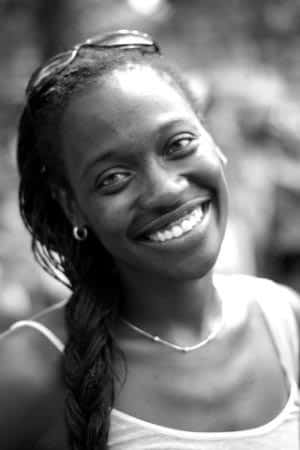
As a nonprofit leader, community stakeholder and self-proclaimed changemaker, Sabrina Burress is leading a committee exploring how Staunton could provide a more equitable and inclusive experience for people living throughout the city.
Burress, in addition to her role as executive director of the ARROW Project, is the chair of the Staunton Diversity, Equity and Inclusion Commission, which was established in 2022 and was tasked with the goal to deliver recommendations to Staunton City Council in December.
The plan, Burress said, is to take all of the data collected and create a report that demonstrates what the city is doing well and what might be missing. At this time, the commission’s role is use the data to prepare a report for City Council – not necessarily oversee the implementation of the recommendations after the fact.
It’s been a challenge to tell people sharing their personal intimate experiences that commission members on their own can’t make immediate changes based on what they learn, but, Burress said, they try to emphasize that what they share could potentially result in inclusion in the commission’s recommendations to the city.
“One of the things that we’ve been really transparent about is that when we get to the point of creating recommendations, it will be the city’s responsibility to say, OK, yes, we can do 25 of these things, or we can do two, or we can’t do any,” Burress told AFP. “I don’t see our city saying we can’t do any.”
As with most cities in Virginia and the nation, city councils and school boards are traditionally considered non-partisan and most candidates don’t run with a political party endorsement. The partisan makeup of the elected members, however, does sometimes have an influence on policies and funding matters.
Staunton City Council has traditionally leaned left politically as with most cities in the state. The commission was first discussed before a surprise shift to more conservative members in 2020. While City Council, under the new leadership, moved forward with the creation of the DEI Commission anyway, some members of the community expressed concern that the end result would be another study without any definitive action.
“In this larger picture, there’s a lot of like, is this lip service? I cannot speak to anybody in the City of Staunton, except these 15 people that I work with,” Burress said. “This is not lip service for us. This commission is made up of folks who largely are either working with vulnerable populations already, who have experience, whether professional or personal, or are allies or advocates. And so we’re all bringing this personal and professional experience into the work.”
Burress said they are following a plan and making sure they check all the boxes for the directives they were given by Staunton City Council.
“My hope is that we create this plan, the city adopts this plan and that we make change. I like to call myself a changemaker. I think change starts one at a time,” she said. “We’re not saying yes, you’re right, or no, you’re wrong. We’re saying we’re committed to doing something that looks like more than lip service.”
Residents of Uniontown, a predominantly Black neighborhood in Staunton, have been waiting for water and sewer work since 2002 – and zoning changes for even longer – but residents there and mounting frustrations aren’t necessarily part of the commission’s work, Burress said.
“I’ve raised children here. I have one that’s graduating next year from Staunton High School, one that graduated four years ago. I have nieces and nephews that are part of the school system. And so making sure they have the best experience they can, despite the color of their skin, is my primary purpose,” said Burress, speaking more to personal experience than her role on the commission.
“The conversation in Uniontown is something that this commission is paying attention to, and something that we want to decide, like, is this something that we address in these action items or in recommendations for the city that maybe changes the potential outcome later down the road?”

Burress and other members, in their roles as city representatives on the DEI Commission, are trying to stay away from taking stands related to their work on issues in the city like Uniontown or nationwide topics like Critical Race Theory, but Burress said they do have a “sort of DEI lens surrounding it.”
Burress said the commission has three goals: look at existing data, listen to voices in the community and then prepare and deliver a report to City Council.
The commission has looked at existing data in Staunton around diversity, equity and inclusion in schools, public offices, employment, housing and food security, among others.
The commission is currently working to sit down with as many community members as possible – to hear about their lived experience related to inequity and exclusion and look at what equity and inclusion looks like for them as well as to build trust among the committee and city residents.
“I think oftentimes, there’s a disconnect between city officials and city residents and stakeholders,” Burress said. “There definitely has been for us a lot of very intentional trust building,” Burress said. “We want you to trust us, right, the 15 folks that were assigned to this commission. We’re intentional about our work. We are meaning to make change.
“We are passionate about what we can do,” she said. “And so we have tried to make sure that whatever happens with City Council, good or bad, it’s not connected to this work … we are commissioned by the city, but our work is separate.”
Listening sessions
Burress said that the commission has hosted listening sessions with the business community, youth and families, older and aging residents, and deaf and blind and other differently abled individuals. They hope to get more data from the unhoused and Latino populations.
Upcoming listening sessions include:
- June 22: Bipoc community (Black, Indigenous and People of Color), Jones Garden, corner of Peck Street and Montgomery Avenue, 6-8 p.m.
- July 12: Interfaith community, Staunton Public Library, 1 Churchville Ave., 5-7 p.m.
- July 26: General population, Gypsy Hill Park Gym, 116th Regimental Drive, 6:30-8:30 p.m.
The general population listening session is aimed to capture data from everyone who hasn’t participated in a previous session. Registration is requested for each of the sessions.
“We know that there are so many advocates, there are so many stakeholders that don’t fall into a particular population,” Burress said. “We do hope to have a large turnout for that (the general population listening session) so that we can get any voices that we potentially missed.”
Burress said the commission has used the same set of questions for each population interviewed and feels the group has received very authentic responses.
“I think folks have been incredibly open,” she said. “You know, open and honest, like here’s what it felt like for me to live and be a part of the City of Staunton, has been really useful.”
For anyone who wants to weigh in but is unable to attend the listening session, Burress said the questions are posted online in a survey. Responses will be accepted through September.
“We’re going to keep that active because we want to hear as many voices as we can,’ she said.
The commission plans to conclude the phase of collecting community responses by September and then shift to creating the report and recommendations to deliver to Staunton City Council in December.
At this time, the commission was created and members were appointed to complete work in an 18-month timeframe, and it will be City Council’s decision as to whether the commission continues to play a part in the city’s DEI efforts after the report is presented to Council.
“So once we complete the recommendations, I think the city will decide then if this if this commission continues, which we all hope that it will, that it will be something that becomes a stakeholder in the community,” Burress said. “And then what that work will look like and who then is on the commission.”
Related stories
Staunton’s Diversity, Equity and Inclusion Commission seeks community stories
Staunton Diversity, Equity and Inclusion Commission to host community meet and greet
Staunton: Input requested on action plan to revitalize Uniontown
Former Uniontown resident on Staunton study: ‘How many more studies do they need?”
Youngkin defends ‘DEI is dead’ guy that he hired away from a Richmond Chick-fil-A
UVA has been overrun by ‘Wokeness,’ according to DEI critic appointed to Board of Visitors
Mark Warner to Glenn Youngkin on DEI: It’s just what is best for business










